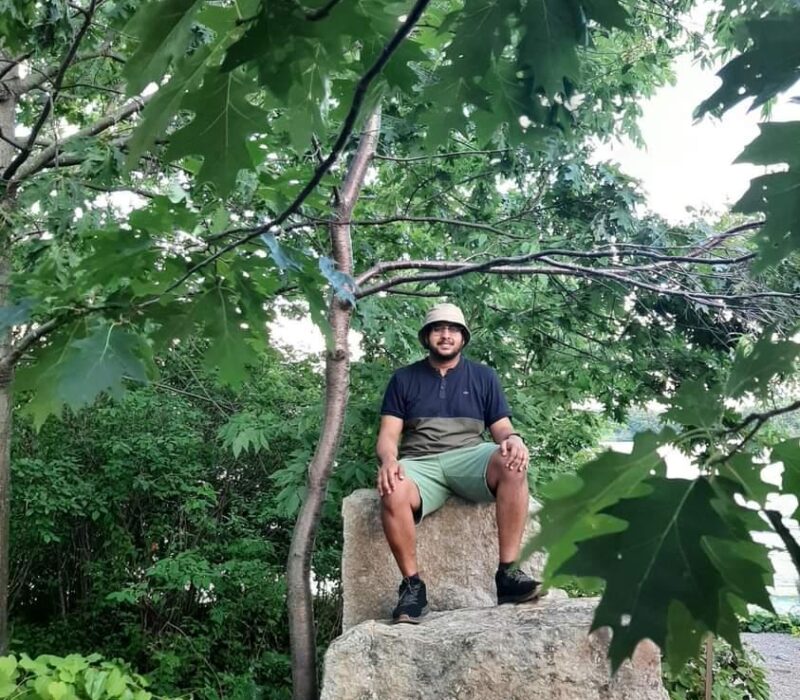When to seek help
For many years I had a hard time with my self-esteem and self worth, and a couple of years ago I was really struggling. I also had a bad back, and was off work, drinking too much and putting on weight. I’d been having counselling and was due to return to work when I had an incident on social media that really hurt me and led me to feel that I would be less of a burden on the world if I wasn’t here.
Richie,
James' Place client
What is a suicidal crisis?
We define a suicidal crisis as intense and distressing suicidal thoughts, feelings of hopelessness and despair, plans or intent to act on suicidal thoughts and/or a recent suicide attempt.
At James’ Place we specifically work with men who are in a suicidal crisis, that is that they are feeling overwhelmed by suicidal thoughts and are at risk of acting on them or have already tried to act on them.
We understand that a complex interaction of stressors and life experiences may have led up to this crisis, or the crisis may have been prompted by an acute onset or relapse of a severe mental illness. We are not able to offer our intervention to men who suffer from a severe mental illness that requires medical support from a psychiatrist.
Risk Factors
We are all very different and have different ways of communicating our distress. However, there are some common experiences that have been identified by researchers that we would consider to be risk factors for suicide. It is important to remember that suicide is still a rare occurrence, lots of people will share these risk factors and it is hard to predict who will actually act on their thoughts and feelings.
At James’ Place we take into account a number of factors when we think about an individual’s risk of suicide. Some of these will be things about your past experiences, some you will be able to identify as a specific trigger for your current difficulties and some will be related to what you are experiencing right now.
Past Experiences
- Adverse childhood events such as bullying, physical and sexual abuse
- Previous self-harm
- Previous suicide attempts
- Bereavement, especially bereavement by suicide
Trigger Events
- Loss or change of role such as retirement, redundancy
- Relationship breakdown
- Sudden change in circumstances – new baby, new relationship, new job
- Recent bereavement or traumatic event
What is happening now
It can be helpful to divide up the signs into four areas:
- Thoughts such as ‘Everyone is fed up with me’, ‘No-one cares about me’, ‘I can’t see a way out of these problems’, ‘I want to die’.
- Feelings such as feeling sad, hopeless, numb, trapped, alone.
- Behaviours such as isolating yourself from people you care about, not looking after yourself, doing things that make you feel worse, putting a plan together to end your life.
- Physical sensations or symptoms such as disturbed sleep pattern, feeling slowed down and sluggish, rapid heart rate, breathlessness.

When should I ask for help?
If you are feeling overwhelmed by your suicidal thoughts or are worried that you may act on them you should reach out for help now. Our understanding is that suicide is a process; a lot of people will experience thoughts of suicide and will have experienced things in their lives which we understand to be significant risk factors- but only a few of those people will move to a state where they feel overwhelmed by suicidal thoughts or begin to make plans to end their life.
If you are not able to dismiss the thoughts of suicide, if they are increasing in frequency and severity, if suicide is feeling like a solution to your problems – then please reach out and ask for help.
You will find emergency contacts in the right column of this page and you can find out more about the support we can offer men in London, the North East, and the North West here.




